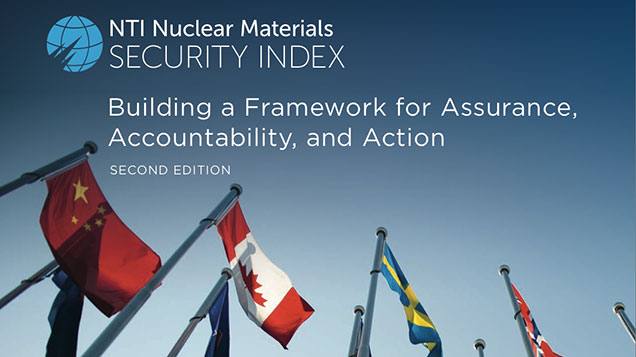Multiple terrorist organizations are known to be seeking a nuclear weapon, thus establishing the imperative of securing all weapons-grade nuclear materials around the globe.
What’s the status of nuclear material security? It’s a mixed bag, according to Nuclear Threat Initiative (NTI) , a D.C.-based think-tank that has just released the 2014 Nuclear Materials Security Index. While seven countries have eliminated their stockpiles of weapons-grade material, there are more than enough disturbing trends in physical security and risk environments to fuel much discussion at the March 2014 Nuclear Security Summit, that will be gather heads of state from around the globe to tackle these issues.
Three observations are worth making:
- Read the report, if even just the executive summary. Securing weapons-grade material is the absolute best way to prevent an act of nuclear terrorism. For all that Silverside Detectors is in favor of developing systems to detect illicit plutonium and uranium when its smuggled across borders or into cities, this is a “needle in a haystack” defensive option. It’s a lot easier to ensure that the needle is never lost.
- Security culture matters. “Insider Threats” as a sub-category for assessing security and control measures, and the relevance of this hits home in the context of two security breaches related to U.S. nuclear missiles just in this past year. In April 2013, 17 Air Force officers responsible for nuclear missiles were removed from their posts due to a plethora of security and other violations. One commentator observed the lassitude that sets in when “stuck” in a specialty that is no longer on the front lines:
“The nuclear missile crews know that there is no career future for them in their field….And that has led to low morale, some loss of discipline and sloppier performance, including the intentional violation of nuclear safety rules.”
Add poor pay, tenuous political circumstances, and a host of other factors that are rife across the globe, and the necessity of guarding against insider threats—both in direct theft and in breaches that lead to theft—becomes paramount. - These solutions require great technology. The recommendations from NTI zero-in on the need for a global system that monitors and enforces nuclear material security standards, much as the International Civil Aviation Organization assures compliance with global standards related to airline safety. Standard measures to prevent material theft—at storage sites and while in transit—are critical, and this is where Silverside’s technology enters the picture. Technology for monitoring static levels of plutonium and uranium is a key part of material security, and this has to be affordable by standards of Belarus and Pakistan, as well as the United States.
NTI’s Index is a great thermometer for diagnosing the health of global nuclear security. And even the top-performing countries should sit up and take notice, as materials stolen from the weakest link are a threat to the entire world.

Recent Comments